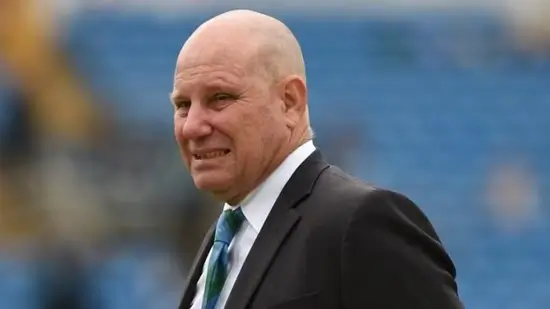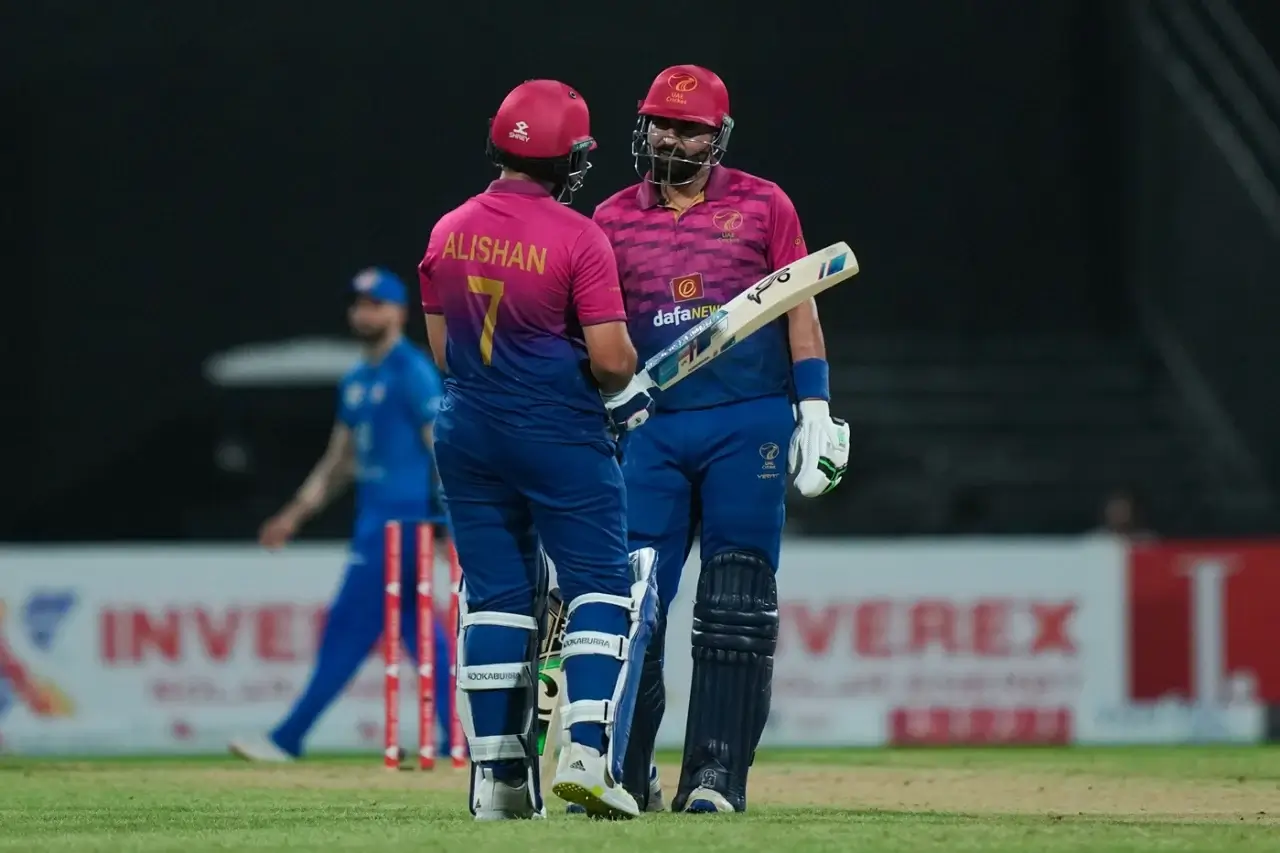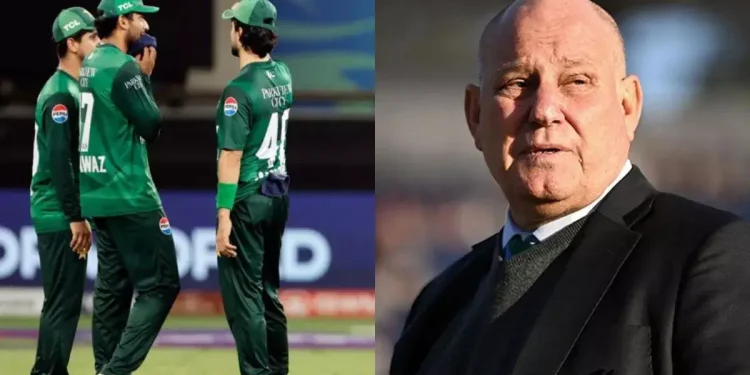A dramatic evening in Dubai saw Pakistan’s crucial Asia Cup fixture against the UAE delayed by an hour. Players remained at their hotel until official clearance was given from Lahore. The standoff ended only after Andy Pycroft, the ICC match referee, apologised to Pakistan’s captain and manager for his actions in the India-Pakistan game.
The dispute began when Pycroft reportedly told the captains that there would be no handshakes before or after the match against India. The Pakistan Cricket Board viewed the move as a violation of MCC laws and contrary to the spirit of cricket. Captain Salman Ali Agha expressed his protest by skipping the post-match presentation.
PCB chairman Mohsin Naqvi held urgent talks with Ramiz Raja and Najam Sethi to decide on Pakistan’s participation. The board cancelled its scheduled press conference, but training sessions continued in Dubai. After Pycroft explained the incident as a miscommunication and apologised, Pakistan were cleared to travel to the stadium. The team arrived just before 6.30 pm, and the toss finally took place at 7 pm. The ICC has now confirmed an official inquiry into the controversy.
The controversy and why it escalated so quickly

The so-called handshake controversy came after Pycroft allegedly barred captains from the customary gesture at the toss. Pakistan argued that this contradicted MCC laws and undermined cricket traditions. The PCB reacted strongly, filing a complaint with ICC general manager Wasim Khan and demanding Pycroft’s removal from the remaining Asia Cup games.
The players were told to stay at their hotel, with departure delayed beyond 4.30 pm. During this time, Naqvi consulted with former PCB heads Raja and Sethi in Lahore. Their collective stance was clear: without clarification or an apology, Pakistan might not take the field.
Pycroft eventually apologised, calling the incident a case of miscommunication rather than deliberate misconduct. The apology was accepted by the PCB, who allowed the team to leave. Fans waited anxiously inside the stadium, and broadcasters had to adjust schedules. The match began an hour late, but the incident revealed gaps in referee communication that the ICC must now address.
How Pakistan’s stand differed from India’s position
For Pakistan, the handshake issue became a matter of principle. Captain Salman Ali Agha openly protested by skipping the presentation ceremony, while the board made its dissatisfaction public. India’s camp, however, remained silent and moved on without comment, focusing solely on cricket. The difference highlighted how Pakistan was willing to risk match participation to defend what it saw as tradition.
Pakistan vs UAE: a virtual knockout in Dubai

The Pakistan versus UAE game carried knockout stakes. Both teams had beaten Oman but suffered heavy defeats to India. This left their meeting as a straight eliminator, with the winner progressing to the Super Four alongside India.
Pakistan entered as favourites after recently beating UAE twice in Sharjah. Yet those matches showed that UAE could compete for long spells. Coach Mike Hesson admitted that Pakistan had a bad day against India, but critics questioned whether their recent wins reflected genuine improvement or just dominance over weaker sides. Fakhar Zaman remained central to Pakistan’s batting, though his innings often ended too soon like England against Indian spin.
For UAE, captain Muhammad Waseem’s form was a major boost. He partnered with Alishan Sharafu to provide strong starts, while Asif Khan offered power in the middle order. Their spinners, Haider Ali and Dhruv Parashar, were expected to test Pakistan on a pitch that favoured slow bowling. Both teams stuck with settled XIs, signalling trust in their combinations for this high-stakes clash.
Key players who could decide the knockout
Pakistan leaned on Fakhar Zaman’s aggressive starts, even if inconsistent. Shaheen Afridi brought both swing with the ball and late-order hitting. Spinners Abrar Ahmed and Mohammad Nawaz were vital on turning pitches. For UAE, Muhammad Waseem’s top-order runs were crucial, while Sharafu’s stability and Asif Khan’s power hitting gave them hope. Haider Ali’s tidy spell against Oman showed how effective he could be in the middle overs.
ICC’s stand and what comes next
The ICC decided to retain Andy Pycroft as match referee for the Pakistan-UAE clash despite PCB objections. By doing so, they made it clear they would not take immediate punitive action but would investigate through proper channels. Following Pycroft’s apology, the ICC confirmed that an inquiry would be launched to examine what happened.
The inquiry will look at whether Pycroft’s instructions violated code of conduct rules or were simply poorly communicated. It will also assess how referees should handle traditions like handshakes, which are not just symbolic but also tied to the spirit of the game. Outcomes could include new training for referees, clearer communication protocols, or stricter guidance on matchday rituals.
Why the ICC inquiry matters for future matches
This inquiry is more than just about one incident. If referees are found to have overstepped, the ICC will be under pressure to tighten rules and clarify communication. If miscommunication is confirmed, the emphasis will shift to training and pre-match protocols. Either way, the findings will set a precedent for how boards and referees handle traditions during tense matches in future tournaments.
Conclusion
What was meant to be a straightforward knockout became overshadowed by off-field drama. The handshake controversy between Pakistan and referee Andy Pycroft delayed the match by an hour. Only after a public apology did the PCB clear the team to travel and play. The incident showed how easily small issues can escalate when communication breaks down.
For Pakistan, the episode became a test of principle and governance. They took a strong stand compared to India’s silence, making sure their protest was heard. For UAE, the controversy meant facing a distracted opponent in a do-or-die clash. For the ICC, the inquiry now becomes a chance to restore confidence in refereeing standards and avoid future confusion.
In the end, the cricket did take place, but the off-field drama left a lasting impression. Fans will now watch closely to see if the ICC can deliver clear guidance and prevent similar issues. For the Asia Cup, the spotlight shifts back to the players, with Pakistan and UAE fighting for survival in a virtual knockout under the lights in Dubai.

